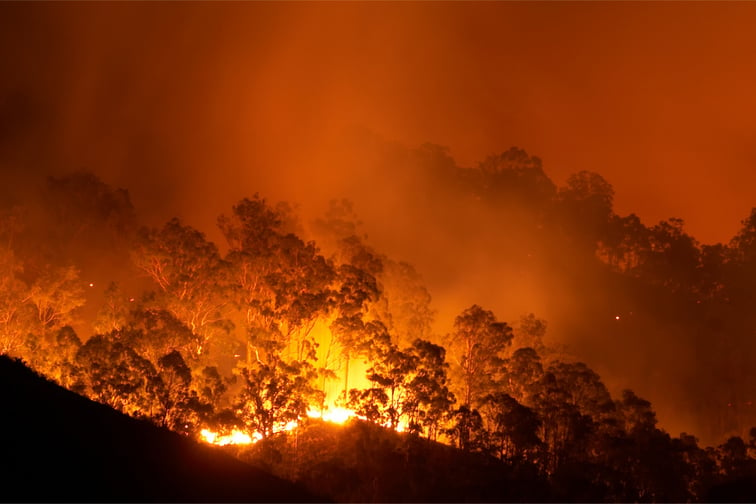

Ahead of the upcoming flood and wildfire seasons, British Columbia officials have given their outlook on the two.
On Tuesday, Public Safety Minister Mike Farnworth joined with representatives from BC Wildfire Service, the River Forecast Centre, and Environment and Climate Change Canada to present the outlook. The officials did note that while it is too early to predict how the weather will play a factor, there are some things that BC residents should still take into consideration.
“In many ways, British Columbia is on the front lines of climate change in Canada and it's clear we all need to do more to keep our communities safe,” said Farnworth.
“I know that if we all work together we can achieve so much. We can help to ensure our collective safety.”
In terms of flood risk, ECCC warning preparedness meteorologist Bobby Sekhon said that BC’s early spring weather was extremely volatile. He also warned that the weeks to come could see more precipitation.
“We're now heading into a relatively wet time of the year as we approach June, which normally is the wettest month of the year for the Interior of BC,” he said.
“It's going to be a fine balance between getting enough precipitation in June that we avoid those dry conditions that could lead to possible forest-fire susceptibility in the summer, but not getting too much precipitation in the month of May when all that water can get into the river systems and give flooding concerns.”
Sekhon also noted that a rapid rise in temperatures could lead to risky fast melting of higher-elevation snowpack. BC River Forecast Centre head David Campbell added to this, saying that the combination of melting snowpack and extreme precipitation can worsen flood risk – weather makes up half of to two-thirds of flood risk in BC, he prefaced.
“It's really going to be the weather that determines how that snow melts,” said Campbell.
For BC’s wildfire season, the officials have mentioned that it has already begun. Some 91 fires have been recorded since the start of April – a fairly average number for early spring, noted Brent Martin of BC Wildfire Services. But conditions could get worse in parts of the province that saw less precipitation during the winter, such as parts of the southern Cariboo and the southeast corner of BC.
“One of the early things that we do start to watch for as wildfire seasons start to unfold is how quickly we move to snow-free conditions,” Martin said, who also explained that the lack of precipitation in certain areas is a repeat of the previous year, since they did not receive enough precipitation to “reset” natural fuels.
The BC officials also announced Tuesday that the province will expand the use of its wireless alerts to include impending flood and wildfire threats. CTV News reported that the notifications will come through the national Alert Ready system, which is typically used in the event of emergencies such as tsunami warnings and Amber Alerts.
